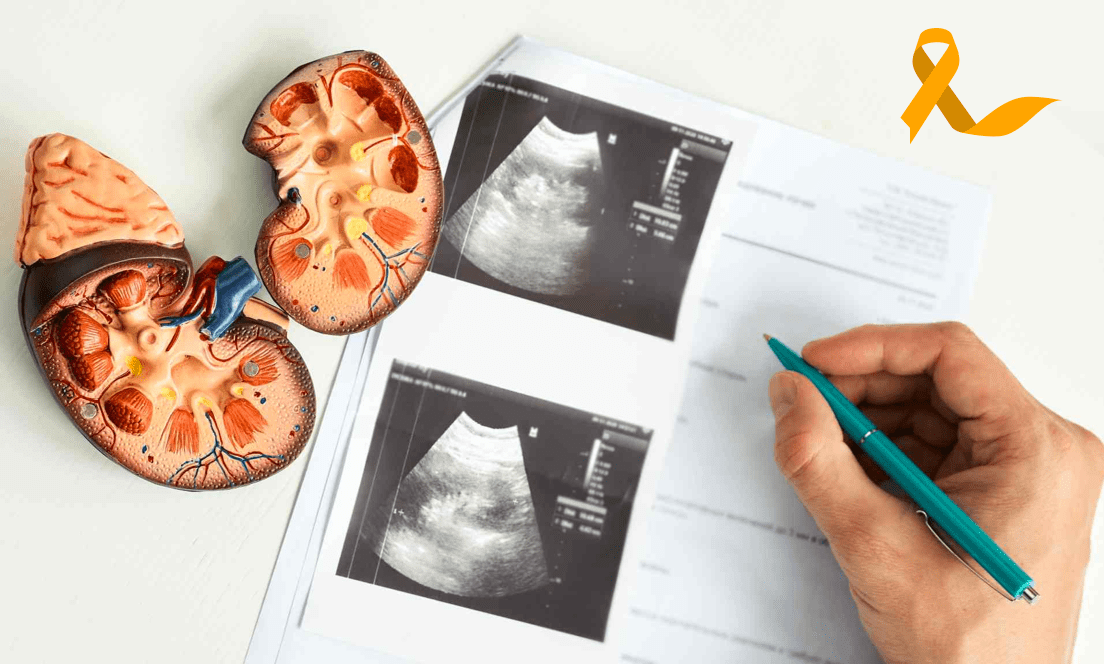Kidney cancer
- CURIA
- Jun, 14, 2022
- Informed Patient
- Kommentare deaktiviert für Kidney cancer

Early detection and diagnosis
Kidney cancer is defined by an abnormal cell growth of cells in the kidneys. The most common type of kidney cancer is renal cell carcinoma (RCC) where one or more tumours grows in one or both kidneys1. Most RCC are of the subtype clear cell renal cell carcinoma characterized by cells which look very pale or clear. There are other types of kidney cancers such as transitional cell carcinoma, Wilms tumors and renal sarcomas1.
Signs and Symptoms2
Common signs and symptoms indicating kidney cancer are:
- Blood in the urine
- Low back pain on one side, which is not caused by injury
- A mass on the side or the back
- Fatigue (tiredness)
- Loss of appetite
- Weight loss
- Fever which is not a result of an infection and does not go away
- Anemia
Early detection and diagnosis
Sometimes kidney cancer can be detected early and at other times not. That’s because these cancers can sometimes grow large without causing pain or other problems. Since kidneys are deep inside our bodies, small kidney tumors cannot be seen or felt during a physical exam.
Finding blood in the urine can be an indication of early kidney cancer but it can also be an indication of other conditions such as urinary tract infections, bladder cancer and kidney stones. Some patients with kidney cancer do not show blood in their urine until the cancer has already spread.
Tests such as computed tomography (CT) and magnetic resonance imaging (MRI) scans can detect small kidney cancers but they are expensive. A less expensive test that can detect some early kidney cancers is ultrasound. It is important for people with inherited conditions such as Hippel-Lindau disease or with a family history of cancer to get regular imaging screening tests to look for kidney cancer. Patients undergoing dialysis for a long term or those who have had radiation administered to their kidney in the past should undergo periodic imaging tests to detect kidney cancer3.
Stages of Kidney Cancer
Cancer is staged and treated depending on how far it has spread. Stages range from I to IV, (I represents less spread while IV represents spread to other parts of the body). Staging also takes into account how far the tumour has spread into nearby areas, lymph nodes and distant sites4.
Each person’s cancer journey is unique and their signs and symptoms may differ but cancers with similar stages generally have a similar outlook and treatment. Hence certain questions should be raised and information should be gathered about the diagnosis and treatment.
Questions related to kidney cancer
If diagnosed with cancer, you should find answers to the following questions5:
- What type of kidney cancer do I have and what stage I am in?
- What is the location of cancer? Is it spreading?
- How will the treatment be decided? And how long will it be?
- Will I need to consult another medical professional?
Quellen:
